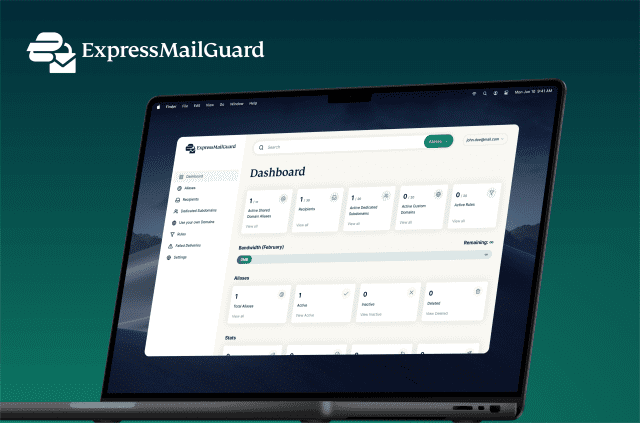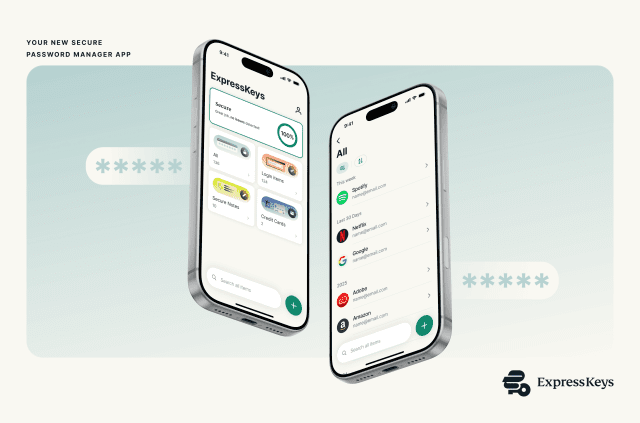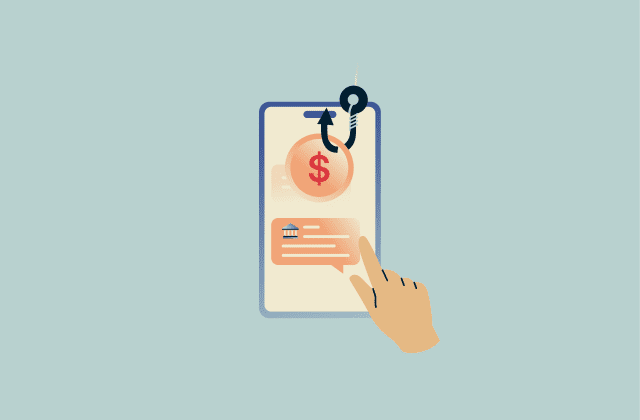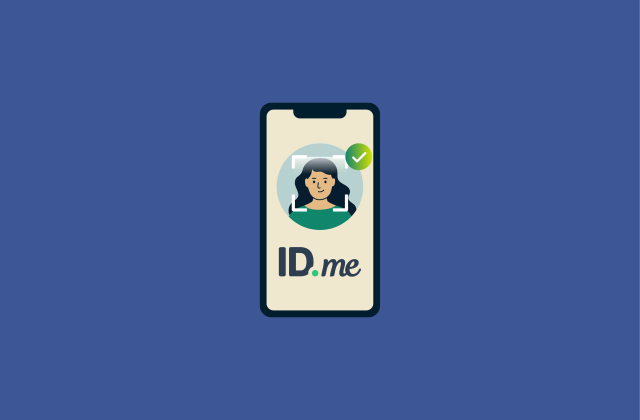How to deep search yourself and remove personal data from the web

You might be surprised by how much of your personally identifiable information is floating around online, from phone numbers on data broker sites to old photos buried in forgotten accounts.
Most of it won’t show up in a basic Google search either, which makes it harder for you to spot, but not for criminals, scammers, or data brokers who know where to look.
This article will help you understand the risks associated with this exposed data, show you how to check for personal information on the internet, and explain how to remove it so you can stay in control of your digital footprint.
Please note: This information is for general educational purposes and not financial or legal advice.
What is a deep search, and why does it matter?
In order to understand what a deep search is, we first have to distinguish between the surface web and the deep web.
The surface web is where people spend most of their time online. It includes publicly available webpages that are easily accessed by search engines. A typical search on Google only returns results from the surface web.
The deep web (not to be confused with the dark web) consists of parts of the internet that aren’t indexed by standard search engines. This includes databases, private directories, archived content, and paywalled sites. Accessing these hidden areas requires a deep search.
Some of your personally identifiable information may reside in the deep web, so understanding how to perform a deep search is essential. It can help you assess your digital footprint, maintain your online privacy, and protect yourself from identity theft and cyber extortion.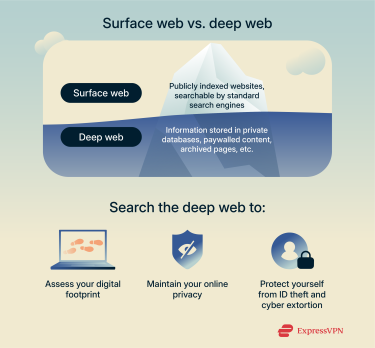
Why you should deep search yourself regularly
Regular deep searches can help you spot new information that may have surfaced and manage your online presence. Here are some good reasons to check what information about you exists online.
Identity theft risks
Identity theft occurs when someone illegally obtains your personal information. The more information there is about you online, the more vulnerable you are to this type of crime.
If someone gets their hands on sensitive personal information, like your Social Security number (SSN), they could use that information to commit financial fraud, open accounts in your name, or impersonate you.
Some criminals also use personal information to launch convincing phishing attacks. In more sophisticated cases, attackers combine real and fabricated information to create entirely new identities. This is known as synthetic identity theft, and it can be particularly difficult for victims to detect or prove.
Reputation damage from old or leaked content
Content you thought was private or long-forgotten may be stored on the deep web. And this information might reappear on the surface web at any time, potentially impacting your personal or professional reputation.
Curiosity and self-reflection
A deep internet search gives you insight into your digital presence. Plus, understanding what information exists empowers you to make informed choices about privacy settings, online behavior, and which platforms to trust with your personal data.
Discovering old social media accounts, forgotten forum posts, or archived content can also be interesting, and it may provide you with a deeper understanding of how you appear online.
How can I do a deep search on myself?
Here’s a simple guide to performing a deep search on yourself.
Step 1: Search variations of your name
Start with regular search engines such as Google. You can search different combinations of your name, usernames, and email addresses to establish a baseline of your surface web presence. Include any past names or nicknames to catch older content.
Step 2: Check data broker websites
Data brokers are companies that collect, bundle, and sell your details to advertisers, marketers, or people search engines. They compile information from public records, social media, and other sources, including information from the deep web. This enables well-known data broker sites to make a surprising amount of personal information publicly searchable, though the accuracy of this information varies.
Sometimes a Google search will bring up your data on a broker site, but another method is to visit the sites of the largest brokers directly and do a search on your details. You may want to secure your internet connection using a virtual private network (VPN) during this process to prevent third parties from intercepting any sensitive data.
Note that some data broker sites don’t allow the average person to search their databases. Reputable data broker sites that do allow this kind of search include Yellowpages, ZoomInfo, and Spokeo.
Step 3: Use specialized people search tools
Like data brokers, people search tools compile publicly available information about individuals from multiple sources, including government records, social media, and commercial databases (some of which are not easily discoverable through standard search engines).
Two widely used people search tools are Instant Checkmate and Intelius, which are both known for the breadth of data they provide, including background, criminal, and contact records.
Step 4: Look into public and legal records
Government databases may include information about you related to court filings, property ownership, business registrations, and historical documents.
You can usually find these records on official government websites. For court filings in the U.S., there’s a tool called Public Access to Court Electronic Records (PACER) that lets you search by your name, case number, or location to find federal court records. You can also visit the corresponding court’s website and look for a case search function.
For property ownership, many counties provide online property assessor or recorder databases where you can search by name or property address to see ownership history. For other types of records, such as business registrations or historical documents, start with the relevant government agency’s official website and use its search or database tools.
When looking into public and legal records, always check that you’re on a legitimate government domain by looking for a “.gov” in the URL.
Can you do a deep search on Google?
Any information you can find directly on Google is part of the surface web. Therefore, by definition, it doesn't count as a deep search, which is specifically about searching areas of the internet not indexed by search engines like Google. That said, Google can still be a valuable part of your toolkit for removing personal data from the web.
What Google reveals (and what it doesn’t)
Google is a powerful tool for uncovering publicly accessible information about yourself. This includes social media profiles, blog mentions, and other web pages where your name or username appears.
It can also provide access to older versions of web pages through its cache or through services like the Wayback Machine. Additionally, some public records, such as court documents or government filings, may be indexed if they’re available on publicly accessible websites.
However, Google cannot access private databases, content behind paywalls, or pages requiring login credentials. Dynamic content, such as e-commerce product listings or information generated in real time, is often not indexed. And many parts of the deep web, including academic resources and private directories, are inaccessible to Google.
Tips for advanced search operators
You can still improve the effectiveness of your searches on the surface web by making use of advanced search operators. These allow you to narrow results, locate specific types of content, and uncover mentions of your name that might otherwise be difficult to find.
Here are some useful advanced search operators:
- site: followed by a domain name: This helps you see all indexed pages from a specific site. For example, site:linkedin.com "Jane Doe" will show all LinkedIn pages where that name appears, even if they aren’t easily found through LinkedIn’s own search.
- filetype: followed by a file extension: This lets you locate specific document types. For instance, "John Smith" filetype:pdf will return PDFs mentioning that name, which could include resumes, reports, or archived documents.
- Quotation marks: Use quotes around phrases to find exact matches. For example, "John A. Smith" will only return pages containing that full name in that exact order, filtering out pages where the words appear separately.
- Minus sign: This excludes terms from your results. For example, "Jane Doe" -job will return pages mentioning Jane Doe but exclude results containing the word “job.”

How to remove your personal information from deep search results
Finding your personal data through a deep search can feel unsettling, but the good news is that there are ways to remove your personal information from deep search results. Here’s a quick overview.
Opting out of data broker platforms
A major source of personal information online comes from data brokers. These sites may display names, addresses, phone numbers, relatives, ages, and even estimated income ranges, all of which can show up in deep search results.
Many brokers allow you to opt out, but the process isn’t always straightforward and can be very time-consuming, as there are many data brokers, and you’ll need to submit a separate removal request to each one. Still, even if you just remove yourself from the largest platforms, this can significantly shrink your online footprint.
Removing content from Google
Google allows you to request removal of certain types of content, such as personal contact information (home address, phone number, email address, etc.) and private, sensitive, or sexual content about you. If your request is approved, Google will prevent the page from showing up in its search results, though the content itself will remain online unless the source website takes it down. For this reason, you may want to combine this method with contacting the website’s owner.
Contacting websites directly
You can contact the site that published your information directly and ask them to remove your personal information. Site owners aren’t legally required to comply with every request, but many will cooperate if the request is polite, specific, and tied to privacy or safety concerns.
When to use professional takedown services
Professional data removal services, like ExpressVPN’s Data Removal service, can send opt-out and data removal requests on your behalf. These services can be particularly useful for people who are short on time or who are at higher risk of harassment, stalking, or fraud. ExpressVPN’s tool is available for U.S. customers.
What to do if you find suspicious or harmful information
If your deep search reveals that there’s problematic information about you online, here are a few steps you should take:
- Request the removal of your personal information by contacting Google and/or the site owner.
- Monitor your financial and online accounts for unusual activity.
- If you suspect that your identity has been stolen, contact the relevant authorities in your country to report identity theft.
- If your personal information has been used to commit credit card fraud, contact your financial institution immediately.

What are the risks of deep searching myself?
Simply performing a deep search on yourself won’t expose new data or increase the likelihood of leaks. The main risks are emotional and psychological: discovering sensitive, negative, or inaccurate information online can be distressing. If you visit a shady site during your search, you might also expose yourself to scams or tracking, so make sure you stick to reputable services and sources.
How to do a deep search on another person
The process of doing a deep search on someone else is the same as deep searching yourself: start with search engines and advanced operators, then check social media, people-search sites, and public record databases.
However, when you conduct a deep search on another person, it’s very important to make sure that you respect legal and ethical boundaries. There are legitimate reasons for conducting a deep search on someone else, but using invasive search methods to go beyond publicly available information or misusing the information you uncover can cross the line into harassment, stalking, or even identity theft.
Tips for maintaining a clean digital footprint
Here are some practical steps you can take to reduce the amount of personal information available about you online.
Perform regular audits and set up alerts
Regularly review your online accounts, public profiles, and search results to see what personal information is publicly available and whether any accounts have been compromised.
Identity protection services like ExpressVPN’s Identity Defender may be worth considering if this sounds like too much of a hassle. Identity Defender, which is available to U.S. users, includes ID Alerts, which notify you of any suspicious activity involving your personal information.
Use a VPN and secure passwords
Virtual private networks (VPNs) like ExpressVPN reduce the risk of data leaks by encrypting your internet traffic. This makes it more difficult for third parties to intercept your data and helps to keep your online activities private.
Using strong passwords reduces the risk of compromised accounts. The best passwords are long, complex, and not reused across different platforms. Password managers like ExpressVPN Keys can help you create and store strong, unique passwords for each account.
Check your social media privacy settings
Review and adjust the privacy settings on your social media accounts to control who can see your posts, contact information, or friend lists. If you no longer use a social media platform, you may also want to delete or deactivate your account to remove a source of personal information about you.
FAQ: Common questions about deep searching yourself
How often should I deep search myself?
While it’s a good habit to deep search yourself regularly, there’s no universal rule for how often you should do it. The right frequency depends on your risk level. For example, individuals who frequently share personal information online, hold sensitive positions, or have reason to be concerned about identity theft may want to check more frequently.
Can I remove court or government records?
Court and government records are often public and cannot usually be removed simply for privacy reasons. That said, in some cases, records may be eligible for sealing or redaction through legal processes. You can also contact websites or search engines directly to request the removal or suppression of specific records, but they may not be legally required to comply.
What tools can automate the process?
Data removal services can automatically locate your information on data broker and people-search sites, which collect and sell personal data, and submit opt-out requests on your behalf. Identity protection tools, like ExpressVPN’s ID Alerts, notify you if they find your personal data in risky or unexpected places, so you can respond quickly.
Is deep search part of identity theft protection?
Yes, doing regular deep searches is a key component of a proactive identity theft protection strategy. Staying informed about what personal information is available allows you to take steps to remove or secure it, adjust privacy settings, and monitor for suspicious activity.
Take the first step to protect yourself online. Try ExpressVPN risk-free.
Get ExpressVPN




